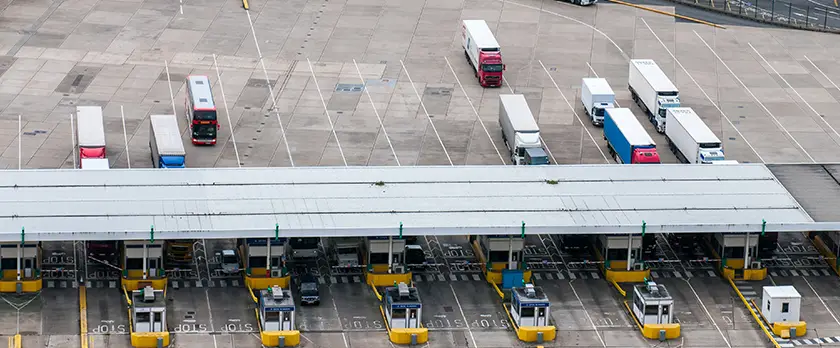UK ⇆ Belgium Shipping Rates 2025
Air Freight

London Heathrow to Brussels – BRU
- 100 kg: GBP 250
- 300 kg: GBP 550
- 500 kg: GBP 825
* Delivery of cargo can vary from 3 - 7 working days form Door to airport
* Documentation surcharge applies to any shipping to Brussels, Belgium
* For an accurate price,
please use our
online quotation form above and provide detailed information about your shipment requirement to Bahrain.
Full Truck Load Rate

- From Feltham UK to Brussels, Belgium £860.00
- From Brussels, Belgium to Feltham UK £1460.00
* If you need Groupage rates, please mention that in our quote form.
We offer fast and dedicated road freight trucks and vans to Brussels, as well as the more usual economy groupage services to and from Belgium.
Whereas other freight forwarders to Belgium may expect you to wait for their scheduled weekly truck, we work with local partners across Europe and the UK to ensure that your cargo is exported to or imported from Belgium on the first truck available.
We have a choice of direct ferry routes including Zeebrugge from Hull, Killinghome, Portsmouth, Purfleet or Rosyth, plus Ramsgate to Ostende and the Channel ports via Northern France – and Eurotunnel too – so we can always offer the ideal route for your cargo from the UK to Belgium or back!
Whether a full load or part load, standard 120 x 100 or 120 x 80 centimetre base pallets, cartons or boxes or crates, or indeed awkward shapes and sizes of machinery or manufactured goods, we will arrange the European haulage to Belgium or back.
Belgium trade and export guide
1. Belgium export overview
Belgium is a small, affluent and multicultural country. It has an open and highly competitive market with opportunities in most sectors.
More than 1,000 public and private international organisations have set up headquarters in Belgium. UK goods and services are well received in the market. UK companies that already work in Belgium include:
- Shell
- BP
- BT
- GSK
Benefits for UK businesses exporting to Belgium include:
- strong and long standing trade relationship
- proximity and easy transport links
- English is widely spoken
- barriers to market entry are low
- population with a high disposable income
- close to top decision makers in international organisations such as the European Union (EU) and North Atlantic Treaty Organization (NATO)
Strengths of the Belgian market include:
- strategic location
- open economy
- early adopter of new technologies
- excellent transport network
Read the practical guide to doing business in Europe.
Doing business in Belgium is very similar to doing business in the UK. If your product or service is successful in the UK, there’s a good chance you’ll be successful in Belgium. At present there are no major challenges to UK companies.
2. Challenges
Doing business in Belgium is very similar to doing business in the UK. If your product or service is successful in the UK, there’s a good chance you’ll be successful in Belgium. At present there are no major challenges to UK companies.
3. Growth potential
3.1 Economic growth
Belgium’s economic outlook remains strong with expected growth of 1% in 2015.
Belgium’s priority sectors for economic development include:
- biotechnology
- agri-food sector
- environmental technology
- pharmaceutical sector
- information communications technology (ICT)
- transport and logistics
3.2 Trade agreements
Belgium is a member of the EU and the World Trade Organization (WTO). This means that goods manufactured in the UK are exempt from import duties.
4. UK and Belgium trade
Belgium is the UK’s eighth largest export market with UK exports worth £12.5 billion in 2014. The Benelux countries, made up of Belgium, Netherlands and Luxembourg, are the UK’s second largest export market (after the US).
Top UK exports to Belgium include:
- chemical products
- medical products
- automotive equipment
- diamonds
5. Opportunities for UK businesses in Belgium
DIT provides free international export sales leads from its worldwide network. Search for export opportunities
Access high value public procurement notices via Tenders Electronic Daily(TED). TED contains all procurement notices above a certain threshold from the EU and European Economic Area (EEA).
5.1 Chemicals and life sciences
The chemicals and life science industry is one of the largest industries in Belgium. There is steady growth forecasted for the coming years.
Antwerp has the second largest petrochemicals manufacturing cluster in the world after Houston.
The pharmaceutical research and manufacturing sector is strong in Belgium with companies such as UCB and GSK Biologicals.
Opportunities for UK companies include:
- process equipment supply
- maintenance expertise
- process monitoring and safety
- biobased chemicals
5.2 Energy
Offshore wind has a big role in the future energy mix in Belgium. There are 8 offshore wind concessions off the Belgian coast. Some are operational while others are still in the early planning phase. There are incentives from the government to encourage the uptake of energy efficiency measures.
Opportunities for UK companies include:
- biomass fuel
- energy efficiency in industrial environments
- intelligent energy monitoring
5.3 ICT
The ICT sector is one of the most dynamic in Belgium. The sector contributes 10% of Gross Domestic Product (GDP) annually. Government funding is available for clusters in:
- microelectronics
- multimedia
- e-security
- broadband technology
- mobile applications
Opportunities for UK companies include:
- e-health
- ICT solutions
- cyber security
- cloud computing
- big data (data which exceeds current processing capacity)
- digital and social media marketing
- mobile
5.4 Security
Belgium has a thriving security industry. It is home to NATO, European institutions and many other international organisations.
Opportunities for UK companies include expertise in:
- counter terrorism
- critical infrastructure protection
- tackling organised crime
- security equipment
- guarding services
5.5 Construction
The construction market in Belgium is split into 3 main sectors: residential, non-residential and civil engineering.
Opportunities for UK companies include:
- collaboration with architects
- public private partnership projects
- sustainable building products
- energy and cost saving products
- specialist building products
5.6 Food and drink
Belgium is often used by large companies as a test market for food products.
Opportunities for UK companies include:
- convenience foods
- snacking
- spirits
- seafood
- ethnic foods
- healthy and organic foods
6. Start-up considerations
Belgium has simple start-up procedures. The administrative formalities to set up your business take 3 days.
There are several ways you can do business in Belgium:
- export directly
- appoint a local partner or distributor
- set up a local subsidiary
- operate through a branch
- joint venture
No prior authorisation is needed to set up a company except for certain specific types of businesses including banking, transport and insurance.
7. Legal considerations
7.1 Standards and technical regulations
Products and packaging should meet EU standards.
The Bureau for Standardisation is responsible for developing, publishing and selling standards in Belgium.
You should provide all users’ information in Belgium’s official languages of Dutch and French. Textile products must be labeled with fiber content information. Further requirements for specific products should be obtained from the importer.
7.2 Intellectual property (IP)
Trademarks, designs, patents and copyright are the principal forms of IP protection available to companies and individuals.
IP law, especially for patent protection, is not totally harmonised within the EU.
The Belgian Office for Intellectual Property is a public service where you can find more information.
8. Tax and custom considerations
8.1 Value added tax (VAT)
The standard rate of VAT is currently 21%. A reduced rate of 12% applies to social housing and agricultural products. A 6% tax rate applies to basic foodstuffs, water, hotel services, property restoration and certain other supplies.
You can find the exact breakdown of taxes from the Belgium tax authority.
Check with HM Revenue and Customs (HMRC) regarding VAT refund of business expenses incurred in Belgium.
8.2 Corporation tax
The corporation tax rate in Belgium is 33.99%.
8.3 Income tax
Professional income is taxed on its net amount.
8.4 Customs
The internal market of the European Union is a single market which allows the free movement of goods and services. Therefore no import duties are applicable.
8.5 Documentation
Goods in free circulation within the EU can move between member states without being subject to any documentation requirements.

